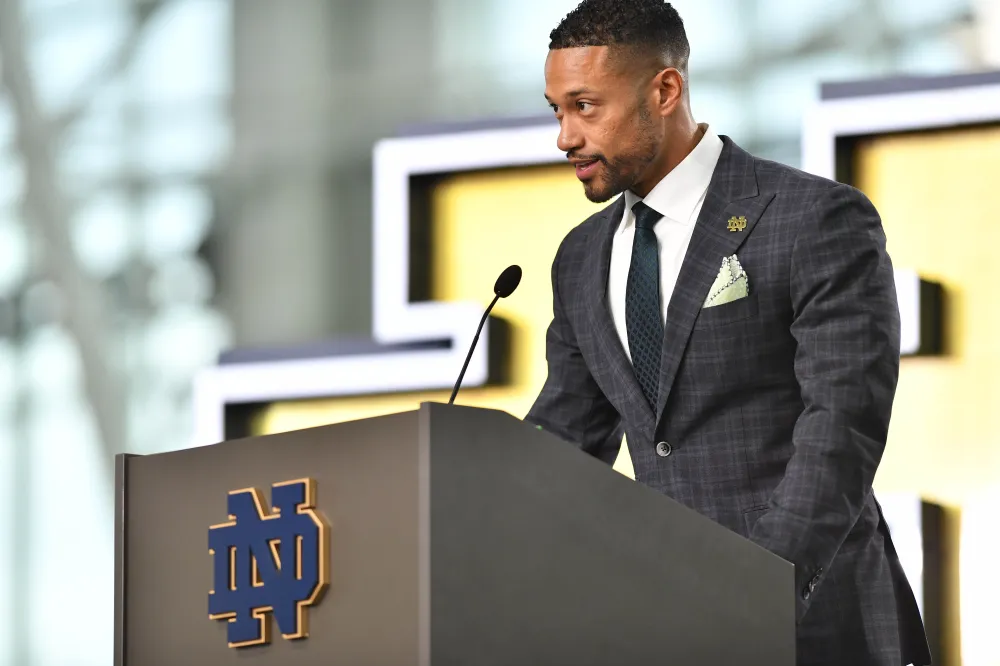Marcus Freeman’s Statement: A Testament of Loyalty and Integrity
In an era when coaches routinely hop from one rich job to the next, Marcus Freeman, head coach of the Notre Dame Fighting Irish football program, has issued a strong statement demonstrating his dedication and commitment to his players. Responding to continuous rumours about his possible resignation, Freeman responded emphatically, “I am not leaving. Money isn’t everything. These statements have struck a deep chord with the collegiate football community, emphasising the principles that Freeman symbolises as a coach and a leader.
For weeks, suspicion circulated that Freeman was being courted by rival programs, with stories claiming that numerous schools were willing to offer him record-breaking contracts. However, the 37-year-old coach has elected to remain at Notre Dame, citing reasons other than financial incentives. Freeman’s decision reflects his commitment to the university, his players, and the history of the program he has helped establish since taking over as head coach in December 2021.
A Coach With a Vision
Freeman’s impact on Notre Dame goes far beyond victories and defeats. During his brief stay, he has established a culture of discipline, resilience, and family within the program. His players praise his ability to motivate and lead with authenticity, and his dedication to their development both on and off the pitch has been clear.
“This program is bigger than any one individual,” Freeman said during his statement. “It’s about the players, their history, and the community. Notre Dame represents something special, and I’m proud to be a part of it.
Freeman’s choice to stay reflects his vision for the future of Notre Dame football. Under his direction, the Fighting Irish have remained competitive on a national level, with recruiting classes frequently ranking among the best in the country. His ability to connect with young athletes and their families has contributed significantly to Notre Dame’s continued success as a football powerhouse.
Rejecting the allure of money.
In a business where contracts for tens of millions of dollars are becoming the norm, Freeman’s proclamation that “money is not everything” serves as a welcome reminder of the ideals that should guide collegiate athletics. While financial security is definitely vital, Freeman’s goals are elsewhere—namely, developing a program that represents greatness, honesty, and tradition.
“It’s not about chasing the biggest pay cheque,” Freeman added. “It is about purpose. I’ve discovered my mission at Notre Dame, and I’m not going to leave it.”
An Inspiration to Many
Freeman’s comments and acts have been praised by fans, alumni, and coworkers alike. His dedication to Notre Dame is inspiring, especially as the collegiate football scene changes rapidly with the introduction of NIL partnerships, conference realignments, and a greater emphasis on income production.
Marcus Freeman’s decision to remain at Notre Dame not only solidified his legacy, but also reinforced the ideals that make college football more than simply a business. His comment serves as a reminder that loyalty, purpose, and ethics remain important in the world of athletics.
As the Fighting Irish continue to progress under Freeman’s leadership, one thing is clear: Notre Dame has a leader who is entirely committed to the program’s present and future. The mission is more important to Freeman than the money.

